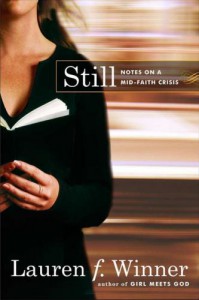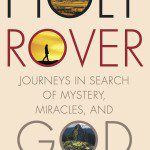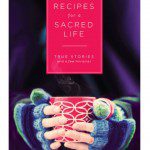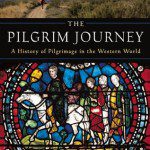 What happens when the things you thought you knew about leading a spiritual life no longer seem to make sense in the life you find yourself living?
What happens when the things you thought you knew about leading a spiritual life no longer seem to make sense in the life you find yourself living?
That’s the central question of Lauren F. Winner’s memoir, Still: Notes on a Mid-Faith Crisis. I was intrigued when I heard that Winner had a new book out, especially when I learned its subject: a crisis of religious faith triggered in part by her mother’s death and her marriage ending in divorce. “Some days I am not sure if my faith is riddled with doubt or whether, graciously, my doubt is riddled with faith,” she writes in the preface.
I already felt like I knew Winner from her lovely Girl Meets God (which tells of her conversion to Christianity from Judaism) and Mudhouse Sabbath
(about what Christians can learn from Jewish spiritual practices). This newest book is more raw, less certain, and more poignant than her earlier works. She writes eloquently about the loss that many of us feel in the middle of our spiritual journeys, when the fireworks of religious enthusiasm have faded and we’re faced with doubts, emptiness, and endless questions.
The book seems like an especially appropriate read during Lent, this time of introspection and inner quiet. I’ve written before about how I have loved this church season ever since I returned to Christianity two decades ago after a long time flirting with other faiths. Lent is an invitation to explore the shadow side of our faith, to wander into the desert of our own doubts and uncertainties.
In Still, Winner explores the difference between God’s hiddenness and God’s absence in a way I found especially insightful. She quotes a friend who says, “This is how my spiritual life has always moved. Like a Jewish day, from darkness and then into light.” And she reflects on the gifts that can come with doubts: “Maybe God has given to some this humming sense that we know nothing, this belief and disbelief a hundred times an hour, this training in nimbleness.”
In the end, I think what I like best about this book is its quiet affirmation that the religious quest is worth making, even though it’s often accompanied by boredom, anxiety and even despair. In the “middle” of a spiritual life is when we often learn the most, though it may seem as if we’re learning nothing.
The book is worth reading for this alone: several lines Winner quotes from a poem by Carrie Fountain. Prayer, Fountain writes,
was the last skill I learned. I practiced
rigorously. Just as I was getting good, I lost it. As soon as it
was gone, I understood it was not a skill at all.











